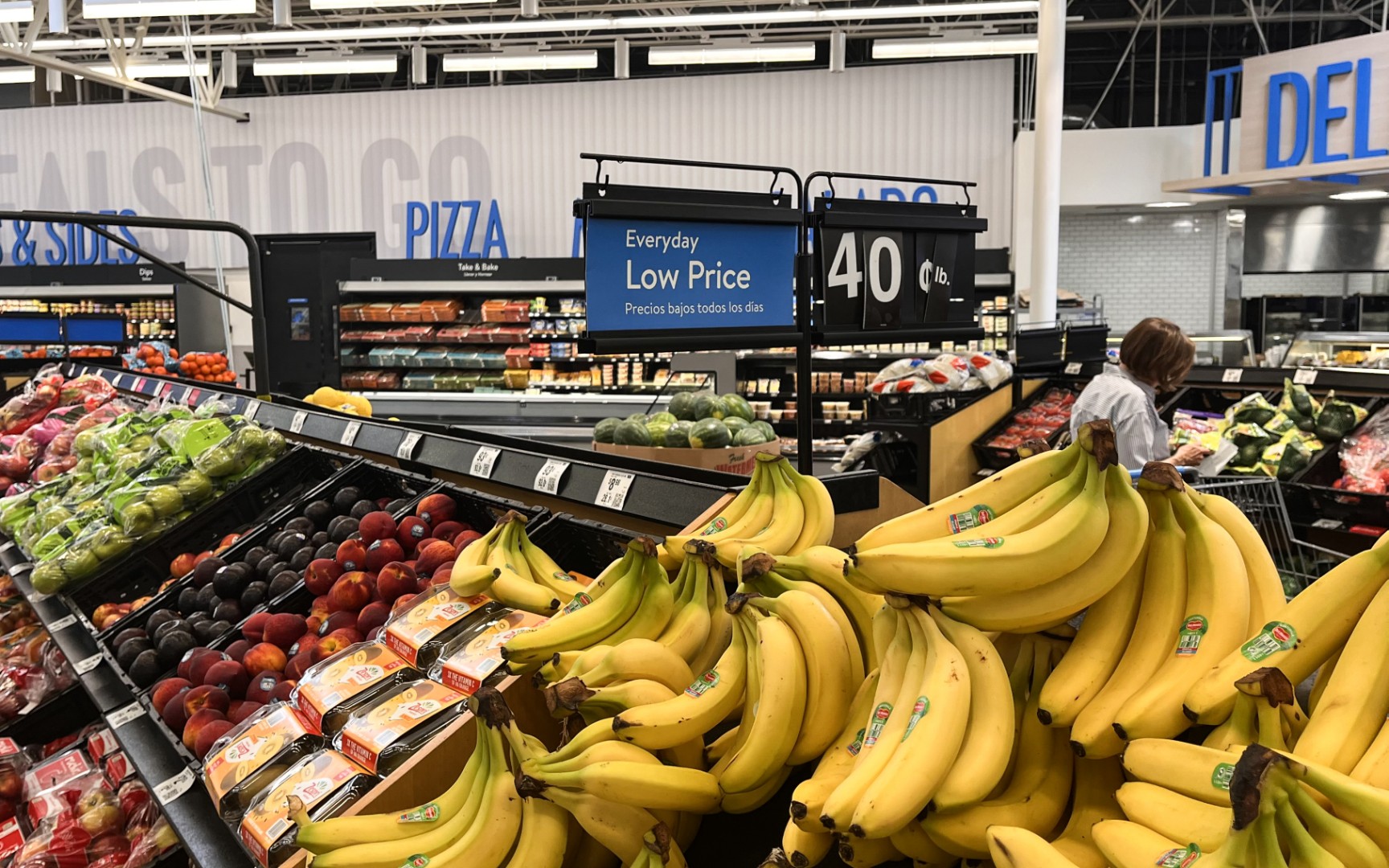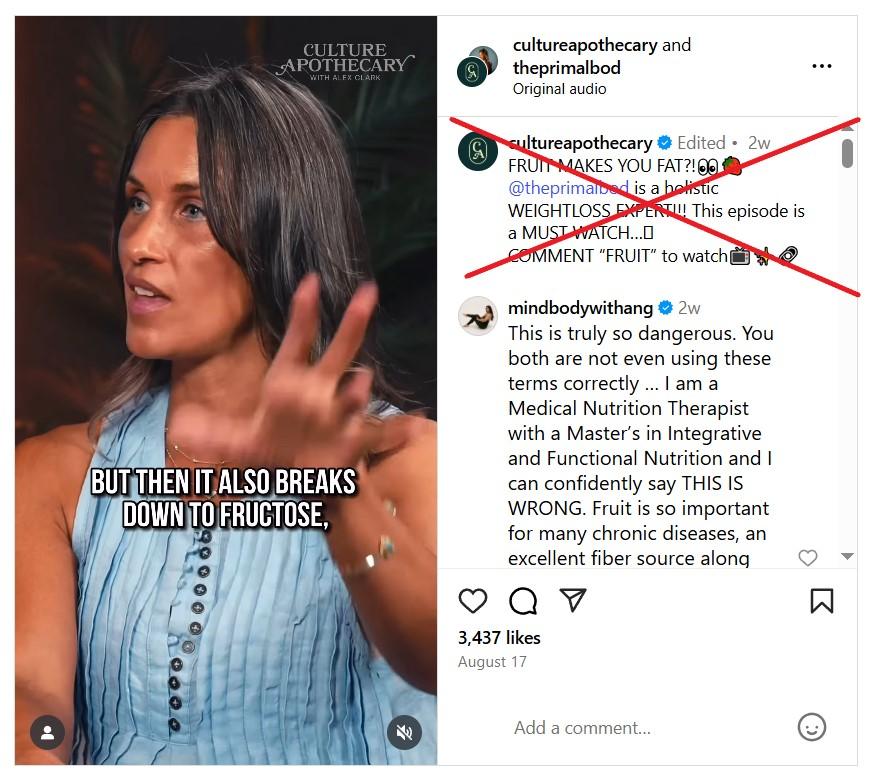
Podcast amplifies false recommendations against fruit consumption
- Published on September 5, 2025 at 23:15
- 3 min read
- By Marisha GOLDHAMER, AFP USA
"Is fruit making Americans fat?" podcast host Alex Clark asks in a short clip posted to Instagram August 17, 2025.
"Yes," says health influencer Candi Frazier, who goes on to claim that when fruit breaks down into fructose, it turns into visceral fat that is hard on the liver and can endanger the heart.

The clip comes from the July 11 episode of the "Culture Apothecary" podcast, which amassed more than 53,000 views on YouTube. Frazier made similar claims in a video uploaded to her Instagram account in May.
Just over half of American adults say they use social media to find health information "at least occasionally," according to August 2025 polling from the independent health policy research group KFF (archived here). The same poll found about one in six people look to such social media personalities regularly for health advice, despite concerns they are motivated by their own financial interests.
Clark, a conservative influencer and a leading voice in the "Make America Healthy Again" movement, has repeatedly platformed guests who pushed health misinformation on her show. Frazier, meanwhile, sells a weight loss program that prioritizes eating meat.
The latter's comments about fruit are not backed by evidence, but echoes misinformation pushed by other diet and wellness influencers.
"Fruit is one of the basics of our dietary recommendations, and people are supposed to have four to five servings of fruit and vegetables a day," Ron Quinton, director of the Goldring Center for Culinary Medicine at Tulane University (archived here), told AFP on September 3.
"Certainly, if somebody ate large amounts of fruit and fruit only, the amount of sugar that they're going to get from eating too much will eventually lead to fat and obesity, but it would it take a lot of fruit to do that," he said.
The Dietary Guidelines for Americans uphold fruit as a core element of a healthy diet (archived here). The World Health Organization also "suggests consuming more than 400 grams of fruits and vegetables per day to improve overall health" (archived here).
Fruits contain beneficial nutrients, such as vitamin C, soluble fiber, magnesium, potassium and other antioxidants the body needs (archived here).
Quinton does caution against fruit juice, which is stripped of fiber, but said he strongly recommends "that people eat whole fruits."
Cut refined sugar, not fruit
The dietary guidance put out by the US Department of Health and Human Services for 2020-2025 says "most people would benefit from increasing their intake of fruit, mostly as whole fruits in nutrient-dense forms" (archived here).
The US Department of Agriculture has also published research showing Americans have been consuming less fruit since the turn of the century (archived here).
Both reports say about 80 percent of the US population consumes less than the recommended amount of fruit.
Most fruit breaks down into glucose and fructose, the most abundant sugars in the human diet. While nearly every cell can burn glucose for energy, most fructose is handled by the liver (archived here).
Frazier is correct that overconsumption of fructose can promote the buildup of fat around organs, or visceral fat (archived here)
But experts recommend lowering intake by cutting refined sugar and corn syrup, not fruit from the diet (archived here and here).
"It's the overconsumption of sugar that we're concerned with, not particularly the overconsumption of fructose or the overconsumption of fruit," Quinton said. "If you cut fruits out completely, your level of nutrients and minerals that you're going to get are going to be less than what we recommend."
Research has consistently shown that despite containing sugar, most fruits actually have anti-obesity effects, including reducing feelings of hunger when consumed whole (archived here and here).
Quinton said Frazier's assertion that vegetarians and vegans are at high risk for visceral fat also disregards evidence that Americans "need to cut down on the amount of saturated fat" they get from animal-sourced food and ultra-processed food (archived here and here).
The US Office of Disease Prevention and Health Promotion recommends limiting saturated fat to about 20 grams per day (archived here).
Find more of AFP's reporting on health misinformation here.
Copyright © AFP 2017-2026. Any commercial use of this content requires a subscription. Click here to find out more.
Is there content that you would like AFP to fact-check? Get in touch.
Contact us
